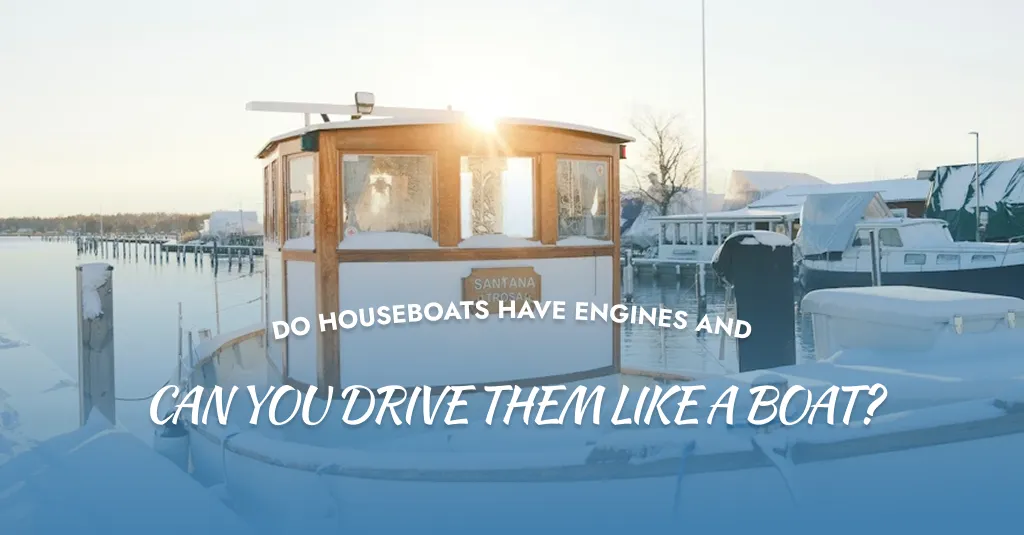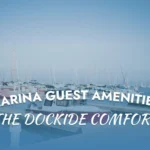
Do Houseboats Have Engines and Can You Drive Them Like a Boat?
Waking up to the gentle lap of waves in the Florida Keys, with the freedom to cruise to a new horizon, is the dream houseboat life promises. But a question often lingers for newcomers: Do houseboats have engines, and can you steer them like a regular boat?
Houseboats are as diverse as the waterways they float on, and understanding their propulsion systems is key to embracing this lifestyle. Drawing inspiration from Mangrove Marina in Tavernier, this guide dives into whether houseboats have engines, how they’re driven, and essential facts for navigating Florida’s waters. Let’s explore the mechanics and magic of houseboat living.
Understanding Houseboat Propulsion
Houseboats vary widely, from stationary floating homes to mobile vessels, and their engine setups reflect this diversity. Let’s unpack the main question and more to see how they move.
What Do People Ask About Do Houseboats Have Engines?
Folks often wonder if all houseboats have engines and how they compare to traditional boats in terms of drivability. Common queries include: Can you cruise long distances, and what skills are needed?
Most modern houseboats have engines, allowing them to navigate lakes, rivers, and even coastal waters like those near Mangrove Marina’s wet slips. People also inquire about ease of driving; houseboats handle more slowly and require wider turning radii than speedboats due to their size. For those curious, Mangrove Marina’s houseboat lodging offers a chance to experience a motorized houseboat firsthand in a protected Florida Keys basin.
Is There More to Know About Do Houseboats Have Engines?
Beyond the basics, houseboat engines vary by type, fuel, and purpose, impacting how they’re driven. There’s more to explore about power options and handling in Florida’s unique waters.
Some houseboats have engines, while others, like permanently moored floating homes, don’t, relying on tugboats for rare moves. For motorized models, options include outboard engines (gasoline, easier maintenance) or inboard engines (diesel or gas, better for larger vessels). Curious about maintenance? Mangrove Marina’s working yard provides mechanic racks for engine tune-ups, ensuring smooth cruises. In Florida, houseboats with engines are ideal for exploring the Intracoastal, with Mangrove’s boat ramp offering easy access.
Do Houseboats Have Engines?
Houseboats with engines are versatile but come with specific considerations, like licensing and safety. Key facts and FAQs shed light on their operation and appeal.
Fact: A 45-foot houseboat (12,000 lbs) can cruise at 5-6 knots with a single 90hp outboard or hit 15-18 knots with twin 260hp V8s. FAQs include: Do you need a license? In Florida, a boater safety certificate is often enough, though requirements vary. Another fact: Electric motors are emerging but costly, often paired with diesel generators. For refueling, Mangrove Marina’s fuel facilities keep your houseboat ready for the next adventure.
Types of Houseboat Engines
Not all houseboats have engines, but those that do offer a range of options tailored to different needs. Here’s a breakdown of what powers these floating homes.
- Outboard Engines: Mounted externally, these gasoline-powered units are common on smaller houseboats, offering easy maintenance and replacement.
- Inboard Engines: Housed inside the hull, these (gas or diesel) engines suit larger houseboats, providing better balance and power for coastal trips.
- Sterndrives (I/O): Combining inboard and outboard benefits, these are popular for mid-sized houseboats, swiveling for thrust control.
- Thrusters: Some luxury houseboats use bow or stern thrusters for precise docking, creating water jets for maneuverability.
For maintenance, Mangrove Marina’s mechanic racks are a lifesaver, offering professional care to keep engines purring.
Can You Drive a Houseboat Like a Boat?
Houseboats with engines can be driven, but it’s not like zipping around in a speedboat. They’re more like a slow-moving RV on water, requiring patience and practice.
Steering a houseboat uses a helm (wheel) and throttle, similar to boats, but their size, often 30-60 feet, means slower responses and wider turns. Most cruise at 5-10 knots (6-12 mph), perfect for scenic trips along Florida’s Intracoastal. Docking is the tricky part; it often needs a second pair of hands, especially in tight marinas like Mangrove’s wet slips.
No special license is typically required in Florida, just a boater safety course for most operators. Modern houseboats often include GPS and navigation systems to simplify the process.
Tips for Driving and Maintaining Houseboat Engines
Driving a houseboat and keeping its engine in top shape takes some know-how, especially in Florida’s saltwater environment. These tips will set you up for success.
- Learn the Basics: Take a boater safety course to master steering and docking. Practice in calm waters like Mangrove’s basin.
- Regular Maintenance: Check oil, fuel lines, and propellers monthly. Mangrove’s working yard offers engine servicing to prevent breakdowns.
- Fuel Smart: Use Mangrove Marina’s fuel facilities for quality gasoline or diesel to avoid clogs.
- Plan Routes: Stick to inland waters or protected coastal areas; most houseboats aren’t built for open seas.
- Safety First: Carry life jackets and use dive flags when anchored. Relax post-trip at Mangrove’s freshwater pool.
Navigating the Houseboat Lifestyle
Houseboats with engines offer the freedom to explore Florida’s waterways, from the Keys’ reefs to quiet rivers. Whether you’re a liveaboard or weekend cruiser, understanding engine options and driving nuances unlocks the full potential of this lifestyle. The best houseboats have engines tailored to your needs, making every trip a breeze.
Ready to dive in? Visit Mangrove Marina in Tavernier for houseboat lodging, docking, and amenities like their restaurant. Book your adventure today and see if a motorized houseboat is your ticket to paradise!
FAQs
What fuel types are used in houseboat engines?
Houseboat engines typically run on gasoline or diesel; diesel is preferred for larger vessels due to efficiency and lower emissions.
How fast can houseboats with engines go?
Most houseboats cruise at 5-10 knots (6-12 mph), with some high-powered models reaching 20 knots, ideal for scenic trips.
Are electric houseboat engines viable in 2025?
Electric motors exist but are pricey, often requiring diesel generators for practical use in Florida’s waters.
Do I need insurance for a motorized houseboat?
Yes, marine insurance ($600-$1,500/year) covers engine damage and liability, especially for live boards.
Can beginners drive houseboats with engines?
Yes, with a boater safety course and practice, rentals at Mangrove Marina often include brief training.





